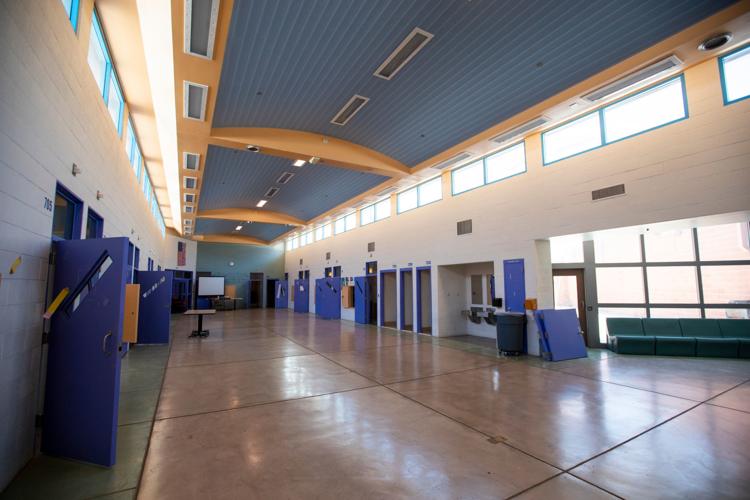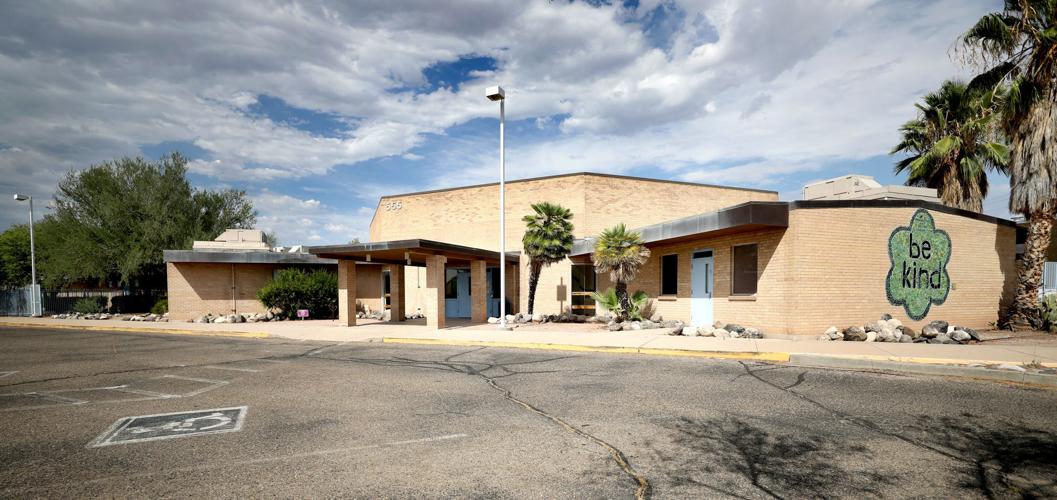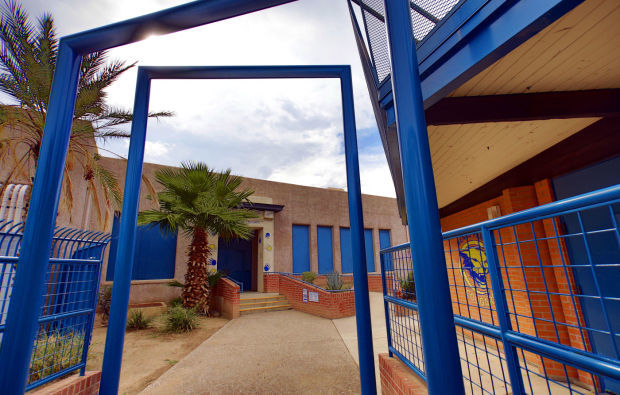A Pima County supervisor and a school board member are pushing to house migrant families at two former Tucson schools, just days after officials announced a tentative agreement to do so at a juvenile detention center.
Despite a looming deadline to find a new venue for migrant families before the former Benedictine Monastery in midtown Tucson closes in the coming weeks, Pima County Supervisor Richard Elías on Thursday said it is important to find an appropriate location.
“We owe it to our migrant guests to find the best possible locations,” Elías said.
TUSD Governing Board President Adelita Grijalva said she wanted to explore moving the families to school sites rather than unused portions of the county’s Juvenile Justice Complex.
“I’m really opposed to moving anyone to a detention facility,” Grijalva said. Even if the facility is retrofitted, she said, “A throw rug isn’t going to change what it is.”
The two former Tucson Unified School District schools proposed for the temporary housing for asylum seekers are Menlo Park Elementary at 1100 W. Fresno St., and Howenstine Magnet High School, 555 S. Tucson Blvd.
The families are made up of asylum seekers who cross the U.S.-Mexico border and turn themselves in to Border Patrol agents, who process and release the families to local religious groups.
Since last fall, Catholic Community Services, an affiliated organization of the Roman Catholic Diocese of Tucson, has led an enormous effort to care for more than 10,000 members of migrant families during the few days the families are in Tucson.
Since January, many of those efforts unfolded inside the former monastery. But the building will no longer be available at the end of July when the property owner turns it into housing and retail space.
“Howenstine is kind of small, but the combo of Menlo and Howenstine could work,” Grijalva said.
Grijalva called TUSD Superintendent Gabriel Trujillo after she found out Menlo Park would be available a week ago, she said.
Trujillo said the district is willing to work with the county, but the county would have to pay the startup costs.
Catholic Community Services did not respond Thursday to a request for comment.
On Monday, county officials said they had reached a tentative agreement with Catholic Community Services to house the families in unused buildings at the juvenile detention center, which fit the minimum requirements of being able to provide safe, sanitary housing for at least 200 people.
If nothing changes, the Pima County Board of Supervisors will consider the plan involving the juvenile detention center at its Aug. 6 meeting, according to a memo released Monday by County Administrator Chuck Huckelberry in support of the plan.
County officials confirmed Thursday that maintenance crews are continuing to prepare the juvenile detention center for migrant families despite the discussions with TUSD.
After Monday’s announcement, Huckelberry said various sites were reviewed as possible replacements for the former monastery, including a few TUSD schools and hotels in South Tucson.
Several county-owned facilities were taken out of consideration because they did not have adequate bathroom or shower facilities and security, county spokesman Mark Evans said on Monday. The recently closed Golden Pin Lanes bowling alley is big enough but has poor security and no showers.
The former Arizona Children’s Home in South Tucson was a front-runner for a while, but it had security problems, Evans said. The county also considered the former Tucson Heart Hospital and other buildings.
The juvenile detention facility “provides a safe and properly designed area for temporarily housing so many people,” Tucson Catholic Bishop Edward Weisenburger said in a news release Monday.
“At first thought, the idea of using a detention center may not seem the best option; we hope that the treatment provided, along with some de-institutionalizing of the interior will help those staying there feel safe and welcome,” Weisenburger said Monday.






